
Arquivo para a ‘Information Science’ Categoria
The Other and narcissism
The brain rot has a face that is not easily detected: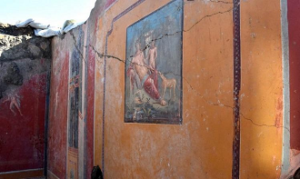 narcissism. The Greek myth that gave rise to the name of this pathology is that Narcissus thought he was so beautiful that he spurned several suitors until he fell in love with his own image and died of hunger and thirst on the banks of a river that reflected his own image (in the photo, a drawing found in Pompeii).
narcissism. The Greek myth that gave rise to the name of this pathology is that Narcissus thought he was so beautiful that he spurned several suitors until he fell in love with his own image and died of hunger and thirst on the banks of a river that reflected his own image (in the photo, a drawing found in Pompeii).
By sticking to our own convictions, values and customs, we develop narratives that justify our worldview, our position or even despise others that may seem reasonable, but I prefer to follow my own guidelines.
The Other is thus a negativity for the narcissist, in philosophy it’s not just people or a distinct entity in relation to oneself, it can also be the diversity of experiences, cultures, beliefs and habits, in short everything that synthesizes a new worldview, different from Narcissus.
Thus, media trends that emphasize a certain behaviour and way of thinking are a dangerous instrument of brain rot, creating narratives and truths that seem true, but in general they abuse marketing, the use of sounds and images that trap the follower.
At the root of everything is idealism and the idea of “models” to be followed, but at a more advanced stage with the use of media, fixing ideas and concepts depends on a certain marketing skill and the use of reliable, sometimes even intelligent, things, the idea of simplicity and the difficulty of understanding the complex is what makes this methodology possible.
The Other, in a nutshell, is everything that is not a mirror, everything that is far from what we have as a model, whether it’s my worldview, my beliefs or, more complicatedly, different political positions.
The fact that a new methodology is needed, such as the hermeneutic circle that proposes the fusion of horizons before “dialog”, a new epistemology that escapes the bipolarity of Being is and not Being is not, creating a third included, like the one already pointed out in modern quantum physics.
So it’s not necessarily a convergent dialog, but one that starts from a common point, there is an initial fusion of horizons, in other words, it starts from a certain initial “convergence”.
Considering the Other is essential in order to escape bipolarization and the common sense of simplistic explanations for complex issues. Here too, a certain simplicity may be necessary: the Other, although not a mirror, has something in common, at the very least the fact that we share the same historical moment, the same era and the same desire for peace.
Love: the neighbor and the partner
One of the hardest chapters in the fall of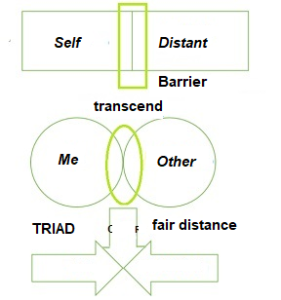 civilization is the transformation of the concept of love. There are even pathologies that live off the cancellation of this relationship, but the basis is the transformation into interest, where interests matter more than any kind of empathy or affection.
civilization is the transformation of the concept of love. There are even pathologies that live off the cancellation of this relationship, but the basis is the transformation into interest, where interests matter more than any kind of empathy or affection.
Paul Ricoeur was the philosopher who directly addressed this issue in his book “History and Truth”, which I would say is a complement to Hans-Georg Gadamer’s book “Truth and Method”.
Selfishness, closing oneself off in vicious circles, opens up chasms of separation with the Other, there is no other word that better defines exclusion, it is this that leads to disbelief in love of neighbor and paves the way for relationships of interest, in short, relationships of money.
What might otherwise have seemed unthinkable, now economic relations create concentric circles, power structures and even urban gangs related to money, and it is these that deteriorate the social base, destroy empathetic relations and create relations of dispute and hatred between groups, at the base of the “brain rot” is the whole of these social relations.
To explain this, Ricoeur talks about charity: “Charity does not have to be where it appears; it is also hidden in the humble and abstract post office, the welfare office; it is often the hidden part of the social”, Paul Ricoeur in Le socius et le Prochain (1954), and is translated in the 1968 book History and Truth.
In Gadamer’s book, what we will find is how to make these relationships when reading a text, or in an ongoing dialog on a given topic, we need a “fusion of horizons”, before the dialog, what the Greeks primarily called époque, that is, making a void in order to listen and dialog with the Other.
This exercise is difficult, not to say almost impossible in a polarized society and any discourse on love is mere rhetoric, at the root of which is “segregating” the Other.
So those who remain in charity, in dialogue and in understanding, have the property to speak of Love.
“Brain rot” the word of 2024
According to the University of Oxford website,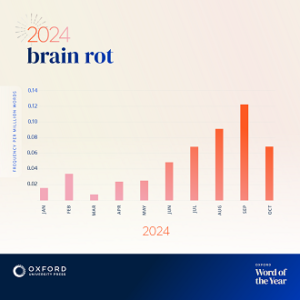 a survey conducted in a public vote with 37 thousand people, the word of the year chosen was “brain rot”, translated as “brain rot” a mental state produced by the excessive consumption of low-quality content.
a survey conducted in a public vote with 37 thousand people, the word of the year chosen was “brain rot”, translated as “brain rot” a mental state produced by the excessive consumption of low-quality content.
According to the Oxford press website, the first recorded use of the word is from 1854, made by Henry David Thoreau, in the book Walden, which recounts his experiences of living a simple lifestyle in the natural world, the author already criticized in the 19th century the tendency of society to devalue complex ideas, or those that can be interpreted in multiple ways.
It is important to understand that this way of seeing the simplistic nature of everyday life is often an indication of a decline in mental and intellectual effort, as the Oxford text quotes: “While England is striving to cure the potato rot, there is no effort to cure the brain rot – which prevails in a much wider and fatal form”.
This serves to understand that current media technologies accelerate this process, but it comes from long data, and also the biggest criticism of artificial intelligence is due to the fact that we no longer elaborate calculations and analyses of complex issues, so the well-articulated intelligence of a machine becomes superior to the media of low-quality intellectual elaborations, resulting from the consumption of media with content without connection and without truth.
It is important to understand that this is a longer process that has gradually meant the emptying of quality content, reading capacity, and especially of methodologies and epistemologies that seek to simplify methods that are not simple. Take, for example, physical and cosmological theories, which have made a leap from Newtonian to quantum theory.
At the existential level, there is an emptying of the being, this is seen in all literature. Dostoevsky, who we talked about in the previous post, was also an existentialist, Edgar Morin spoke of the complex method, and medicine increasingly talks about holistic treatments that treat the entire body. So the idea that this is due to the emergence of digital devices is very shallow.
They undoubtedly have an influence, but the tendency towards an empty culture has been around for a long time. Nietzsche already talked about it. Theodore Dalrymple, the pseudonym of the psychiatrist Anthony Daniel, who wrote about the emptying of culture, already wrote about it in the 1980s: Coups and Cocaine: Two Journals in South America (1986), Fool or Physician: The Memoirs of a Sceptical Doctor (1987) and Philosopher’s Republic (1989) (under the pen name Thrusday Migwa).
In short, we are experiencing a decline in civilization. There is even talk of communication difficulties (studies on changes in writing carried out by the University of Stavanger, in Norway).
Four books to read in 2025
Happy 2025 to everyone who reads me and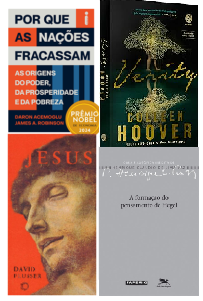 follows my social, spiritual and intellectual concerns. In my opinion, we need to read and re-read the Other, the contradictory, what we ignore.
follows my social, spiritual and intellectual concerns. In my opinion, we need to read and re-read the Other, the contradictory, what we ignore.
It’s good to make a resolution for the year ahead. I consider reading to be important, and now more than ever due to a certain cultural and spiritual cooling of this habit.
Every year I set myself the goal of reading four books, but I end up reading more or partially reading one of the proposed ones if I find the book falls short of what I expected, but this is rare.
In 2025, three books caught my eye. The first, which I still find few references to, is the book “Liberty”, a novel about a couple in love and an intruder, three sick minds, but the author Collen Hoover has also been making a name for herself on social media and in a TV series, that has boosted sales of her book.
The second book is by two Nobel laureates in 2024, “Why Nations Fail” is written by Daron Acemoglu and James A. Robinson, who together with Simon Johnson won the Nobel Prize in Economics in 2024. The synopsis of the book says that they defend the original thesis that the likelihood of countries developing good institutions is when they have an open political system, with disputed charges, a broad electorate and space for new leaders to emerge, and this seems to explain the current scenario of political and economic decay.
David Flusser’s book caught my attention from the moment I read the first blurb, the book, a comprehensive overview of first century Palestine when Jesus lived, the religious ideas that circulated, the political struggles and social antagonisms of the period, shows a Jesus who was consistent with the Old Testament (the Torah) and identified with his people.
The author was a professor of Hebrew culture at the University of Israel and was a moderate Jew who received the Israel Prize from the Israel Academy of Sciences and Humanities in 1980.
I read the first volume of Henrique Cláudio de Lima Vaz’s Obra Filosófica, which was the result of research carried out during the 1988-1989 biennium and sent to the CNPq (Brazilian Foundation for Research) when he was a research fellow. His project was: “The Hegelian construction: a paradigm of systemic rationality”, in which he clearly explains Hegelian thought, and the second volume is more structured in terms of the core of Hegelian thought.
This volume, according to the synopsis, goes from the formation of Hegel’s thought to the Phenomenology of Spirit, and as Henrique Cláudio was a Jesuit priest (he is now deceased) I am interested in the extent to which contemporary religious thought is influenced by Hegelian idealism.
Happy 2025 to everyone, make a purpose, be resilient (happiness isn’t easy) and show solidarity with those who need you.
The real chances of peace in 2025
A 2024 assessment of the war is disastrous: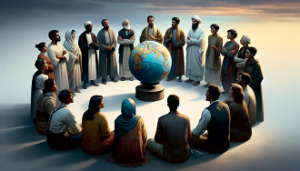 the conflict that has broken out in Gaza, with Israeli forces invading that territory and carrying out actions that are reprehensible for their acts of cruelty and difficulties in accessing international aid organizations, the increase in the conflict in Eastern Europe, now also with aggressions on Russian territory and China’s threats against Taiwan paint a very sad and worrying picture.
the conflict that has broken out in Gaza, with Israeli forces invading that territory and carrying out actions that are reprehensible for their acts of cruelty and difficulties in accessing international aid organizations, the increase in the conflict in Eastern Europe, now also with aggressions on Russian territory and China’s threats against Taiwan paint a very sad and worrying picture.
The American government-elect that takes office in January, Donald Trump, has promised to put an immediate end to the war. The problem is that the 4 provinces dominated by Russia by force: Donetsk, Luhansk, Zaporizhzhia and Kherson, are not in question, although Russia says that “some border adjustments” are possible, and demands that Ukraine be left out of NATO.
Russia would thus gain 18% of Ukraine’s territory, but fears that a “ceasefire” agreement is just a way for Ukraine to take a breather and rearm; if the current escalation continues, greater involvement by European nations could make the conflict off-limits to negotiations.
The other worrying pole is the escalation of the war in the Middle East. Israel is not backing down from its pretensions to eliminate its enemies in the region, but it is doing so outside humanitarian limits and what is considered abominable, even though the war is already a humanitarian disaster, the bombing of schools, hospitals, the last one that was functioning precariously also seems to be out of operation in Gaza, goes beyond the limit and to the point of being an abomination, Even if we know that war is already a humanitarian disaster, the bombing of schools and hospitals, the last of which, which was functioning precariously, also seems to be out of operation in Gaza, goes beyond the limit and makes those responsible guilty of a war crime, of course, the terrorism atack in october 7th in Israel its crime too.
There are reasons to consider peace, yes, because it creates global tension, weakens the economy and affects the most vulnerable peoples, bringing more misery and hunger. Strictly speaking, it shouldn’t interest anyone, but there is a tragic reasoning behind wars, which is to know “if my enemy has lost more”, since everyone loses, and the most fragile are the first to be hit.
The world is polarized, even those who should be the most ardent defenders of peace have given themselves over to the bipolar game of hating the enemy, without the possibility of dialogue or understanding a different point of view, everyone says “this is unreasonable”.
So we frantically search social media for those judgments and hatreds that favor us, without realizing that we have become influenced by this bipolarity and this hostile climate between peoples, political positions and a rational dialogue about their positions and ideas.
There is always hope for a renewal of the civilizing process, but at the moment it seems stuck and regressing to absurd levels of education, health, culture, politics and even spirituality, which has become a business and without any exercise in analyzing the heritage on which most religions were built: solidarity, helping the vulnerable, greater social balance and environments of truly spiritual values and virtues.
What wasn’t said about Jesus’ birth
It’s not part of the biblical narrative, but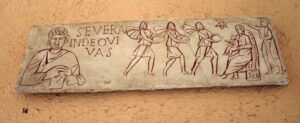 apart from the Roman census, Herod’s persecution (historical data) when he placed Jesus in a manger wrapped in cloths and the coming of the “magi”, it can be clarified in the light of stories from the time.
apart from the Roman census, Herod’s persecution (historical data) when he placed Jesus in a manger wrapped in cloths and the coming of the “magi”, it can be clarified in the light of stories from the time.
It was Jewish custom to separate a newborn lamb for the Jewish Passover sacrifice, recalling the sacrifice that Abram would make with his son and that an angel interceded by offering a lamb, the fact that Jesus was wrapped in swaddling clothes also recalls a Jewish custom of the time to separate the lamb, wrap it in swaddling clothes and place it in a manger, with special care.
So this is already a preparation for Easter, since he was born and made small to be like earthly man, even though he was a God, an Emmanuel, the divine among us.
But remembering yesterday’s astronomical events, we also want to remember the “magi”, who may have been kings and not magi, because they had gifts of prophecy and were informed about a star “And when they saw the star, they rejoiced with great and intense joy” (Mt 2:10-11) and so they followed it and found the child in Bethlehem as the Jews had expected.
The star that announces a cosmic event that predicts the arrival of the “king of the universe” and not just the “god of the Jews” could be the passing of a comet, an event that was already known at the time, although it was mistaken for a “shooting star“, if It had to choose (see the previous post), I’d choose the nova, which is the birth of a star. In short, the famous “guiding star” could be one of these phenomena.
The image of the Adoration of the Magi, in a stone painting dating from the 3rd century AD (photo) shows only a star, without the typical cometary tail, so it could be any of the celestial phenomena that cause great brilliance.
It’s worth remembering that the kings who came to worship Jesus weren’t Jewish, and yet they had a sign and followed their vision (it wasn’t magic, of course) and worshipped him.
Christmas and Herod
The rumor that a Messiah and a Savior would be born infuriated Herod, who ruled Judea under the Roman Empire. He ordered the killing of innocent children, persecuted rebels and lived on fury, lust and power; wars today resemble this character from the beginning of the Christian era.
born infuriated Herod, who ruled Judea under the Roman Empire. He ordered the killing of innocent children, persecuted rebels and lived on fury, lust and power; wars today resemble this character from the beginning of the Christian era.
Because of the conflicts over the colonization of the Jews, Herod’s interpretation and that of some religious people was that the Messiah would be a warrior, a “king” and for this reason he ordered them to look for the newborn and without finding him he ordered the killing of the newborns of that time.
The Jews demonstrated because of the high taxes, and after Jesus’ death in 70 AD the second temple was destroyed, according to the Heritage Daily website there is historical evidence that this happened (photo).
It’s no different today, they’re looking for political interpretations of Advent, which announces not only the fact that Jesus was born, but also his second coming (Parousia) and there’s no shortage of Herods who instigate wars and violence, big or small, and hatred is widespread in our time, but for true Christians and also religious people who celebrate Christmas in their own way, it will always be a time of true peace and the coming of Jesus.
In Eastern Europe, in the Gaza Strip and in many other parts of the world, the spirit of Herod lives on, hunting and killing innocents, justifying atrocities with sweetened narratives and even with words that inspire peace and help for needy populations, but they are just narratives.
The spirit of Love and Peace is resilient for those who really want a better world. There will always be warmth and harmony in the homes of those who live according to respect and will have more affection and affection than food, drink and luxurious exaggerations.
True Christmas celebrations will also seek more concrete words and actions of fraternity and will lead minds and hearts towards the resilient spirit of Christmas peace.
History, parousia and false prophets
Christmas is coming and the birth of Jesus is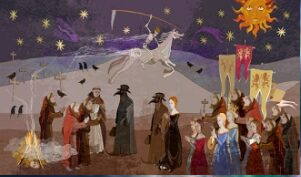 a historical fact, because there was a census ordered by the Roman emperor Caesar Augustus, and Joseph and Mary went to Bethlehem because people had to be counted in their cities of birth. As for the date, there is controversy because it would have been between 4-5 BC, when Quinine was Governor of Syria as described in the Bible (Lk. 2:2), but it is certain that the census was carried out and this was precisely the reason why Mary and Joseph went to Bethlehem, where Jesus would be born.
a historical fact, because there was a census ordered by the Roman emperor Caesar Augustus, and Joseph and Mary went to Bethlehem because people had to be counted in their cities of birth. As for the date, there is controversy because it would have been between 4-5 BC, when Quinine was Governor of Syria as described in the Bible (Lk. 2:2), but it is certain that the census was carried out and this was precisely the reason why Mary and Joseph went to Bethlehem, where Jesus would be born.
There are disputes about the dates and the accuracy of the dates (not the facts), since the calendar was changed by the Roman Empire and there would have been a three-year gap.
History is also punctuated with divine interventions, in the decadence of Rome the monasteries were born, where the culture of cooking, the first guilds and trades and also an earlier phase of printed writing took place, the final period in which the black plague occurred at the end of the 14th century, caused by the Yersinia Pestis bacillus that decimated a large part of the population at the time.
This disease, however, decimated part of the Mongol army fighting the Genoese in the city of Caffa (now Theodosia) on the Crimean Peninsula, and was the beginning of the decline of the great Mongol empire (1209-1368).
We’ve entered modernity, we’ve done some occasional reading in our posts Everyone in the same boat and If Europe wakes up by Sloterdijk, where he mentions Boccaccio’s classic work Decameron as a “small community”.
In a footnote, he quotes from Henrik Siewierki’s “A Mass for the City of Arras” (translated by Brazilian editor: Estação Liberdade in 2001), which analyzes both the psychological and political consequences of the plague. Psychologist Franz Renggli, in his book Self-Destruction by Abandonment, also developed the hypothesis that the plague had an influence on modernity, as well as the degradation of the mother-child relationship, which would have caused a kind of collective, psychosomatic immune weakness that favored the plague virus.
Someone might have thought at the time: it’s the end of times, but it was a big change and also the biblical meaning is that (when you hear about wars, revolutions): “all this must happen, but it is not yet the end” (Mt 24:6).
This whole analysis is interesting, because in the midst of the recent Pandemic (the current plague), while it was undoubtedly a scourge, it can nurture a new glade over our community (a word used by Sloterdijk), that is, the idea of mutual defense and solidarity in view of a catastrophe even greater than the one that happened.
It serves to “smooth the way”, as the Bible reading says when John, the son of Zechariah and Elizabeth, proclaimed in the desert using the words of the prophet Isaiah: “This is the voice of him who cries out in the desert: ‘Prepare the way of the Lord, make his paths straight’” (Lk 3:4) and it seems appropriate for this time of scourge and desert.
It’s important to remember that the first two weeks of Christmas commemorate not the coming of Jesus, but the new coming of the Lord.
End of wars and the magic of Christmas
Can this time of year infect the world in such a way 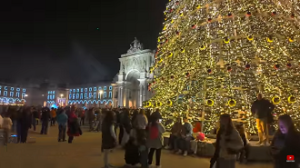 as to turn the tide of war, the scenario of this first week of December seems to say yes.
as to turn the tide of war, the scenario of this first week of December seems to say yes.
The dictator of Syria, Bashar al-Assad, who ruled Syria for almost a quarter of a century, has fallen. While the London Observatory for Human Rights says that he fled in a private plane, the Russian Foreign Ministry, a traditional ally, has declared that he has “resigned”.
The leader of a coalition of opponents, Abu Mohammed al Jolani (he now goes by his real name Ahmed Al-Shara), led the Organization for the Liberation of the Levant (Hayat Tahir al Sham, or just HTS), from extremist origins (he was linked to Al Qaeda) and adopted a more moderate stance, gaining allies.
Syria’s Prime Minister, Mohamed Ghazi al-Jalali, has declared himself willing to collaborate with the insurgents, saying that he will extend his hand to “any Syrian who is interested in the country in order to preserve its institutions”, but it is likely that he will also resign or be removed from office.
Talks are also progressing under the patronage of US President-elect Donald Trump, a meeting with President Makron of France and Zelensky of Ukraine, and the international scene has been gripped by the prospect of peace that is now apparently possible.
In Latin America, at a meeting in Montevideo last Friday (6/12), after 25 years of negotiation, the leaders of the South American bloc signed an agreement with the European Union. For Brazil, the agreement makes strategic sense to promote learning and improvement in how our productive sectors generate commodities, which are the primary goods in the production sector: agricultural, livestock, mineral and environmental, in which the country is abundant.
In short, everything seems to be building a new harmony and fostering the Christmas atmosphere, but we need a lasting peace where the sectors involved don’t feel “defeated”, we need a balanced global economy without protectionism or unfair competition and, above all, we need a frontal attack on serious social and environmental issues.
Christmas exists, the beautiful illuminations in Lisbon (video), for exemple, and many others across Europe are trying to recapture a climate of hope and peace, there’s even a movie from the film industry (it’s not a theological movie) about the Virgin Mary (it was released on September 6th) and therefore the birth of Jesus.
Wisdom and humility
Those who claim to be great, or who receive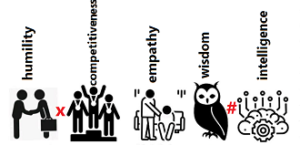 great honors, are not great; in fact, they are more linked to temporal power than to divine wisdom, they are only those who are content with passing joys and honors, often linked only to self-interest.
great honors, are not great; in fact, they are more linked to temporal power than to divine wisdom, they are only those who are content with passing joys and honors, often linked only to self-interest.
Other words that correlate with true humility include: naturalness, simplicity, simplicity, unpretentiousness, dispassion and detachment. In today’s world of immediate and fleeting narratives, they are clearly linked to pretension and affectation.
Another misconception that is more difficult to understand are the everyday correlates of humility, such as: submission, obedience, respect, compliance, subjection and passivity. This refers to people who are humble, but have difficulty discerning, even though obedience is a praiseworthy virtue, it can become subservient and harmful.
In the book Near to the Wild Heart (Perto do coração selvagem), the writer Clarice Lispector wrote: “I accept everything that comes from me because I have no knowledge of the causes and it is possible that I am stepping on the vital without knowing it, that is my greatest humility,” so one can be consciously obedient.
The former prime minister of Israel (1969-1974), Golda Meyer, once said to Moshe Dayan, a military man and politician at the time: “Don’t be humble, you’re not as important as you think”.
The vice that opposes humility is pride. There are many proud, vain, false prophets, Pharisees or just worldly people who have this vice. In biblical terms, it was pride that made one of the archangels of the high hierarchy want to be equal to God; the part contains part of the Whole, but it is not the Whole, and the narrative that everything is fragmentary is also false.
In all the biblical passages in which Jesus performs miracles, he always says to the interlocutor: “your faith has saved you”. The proud, Pharisees and idolaters want to attribute to themselves or their group the divine interventions in which they only participate in the invocation, and many of them don’t believe that the invocation is valid and so they condemn the intercessors, even though they do the same.
Pride explains many evils: war, greed, not caring for those in need, disrespect for nature (wanting to dominate it) and especially power and disrespect.
So humility is the effective antidote to all these evils: we are no more or better than anyone else, but we each have our own uniqueness and our own purpose.

